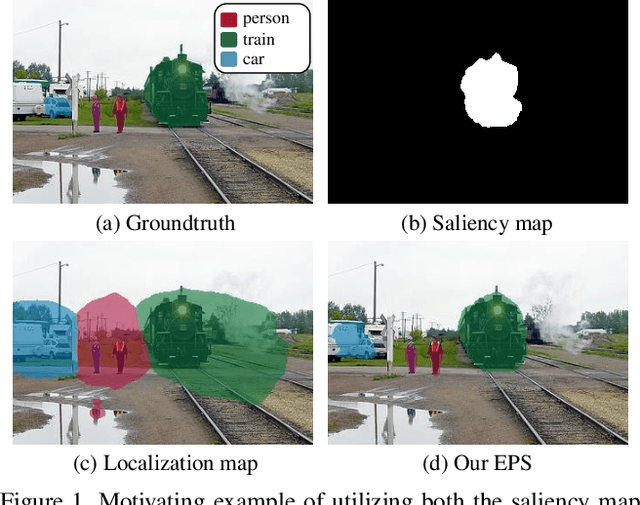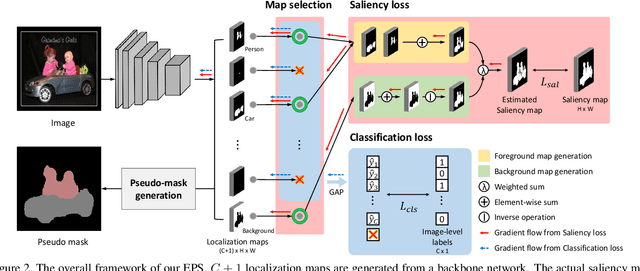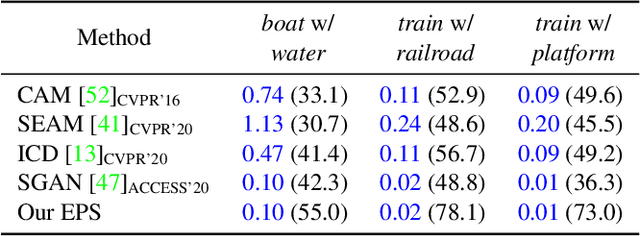Railroad is not a Train: Saliency as Pseudo-pixel Supervision for Weakly Supervised Semantic Segmentation
Paper and Code
May 19, 2021



Existing studies in weakly-supervised semantic segmentation (WSSS) using image-level weak supervision have several limitations: sparse object coverage, inaccurate object boundaries, and co-occurring pixels from non-target objects. To overcome these challenges, we propose a novel framework, namely Explicit Pseudo-pixel Supervision (EPS), which learns from pixel-level feedback by combining two weak supervisions; the image-level label provides the object identity via the localization map and the saliency map from the off-the-shelf saliency detection model offers rich boundaries. We devise a joint training strategy to fully utilize the complementary relationship between both information. Our method can obtain accurate object boundaries and discard co-occurring pixels, thereby significantly improving the quality of pseudo-masks. Experimental results show that the proposed method remarkably outperforms existing methods by resolving key challenges of WSSS and achieves the new state-of-the-art performance on both PASCAL VOC 2012 and MS COCO 2014 datasets.
 Add to Chrome
Add to Chrome Add to Firefox
Add to Firefox Add to Edge
Add to Edge